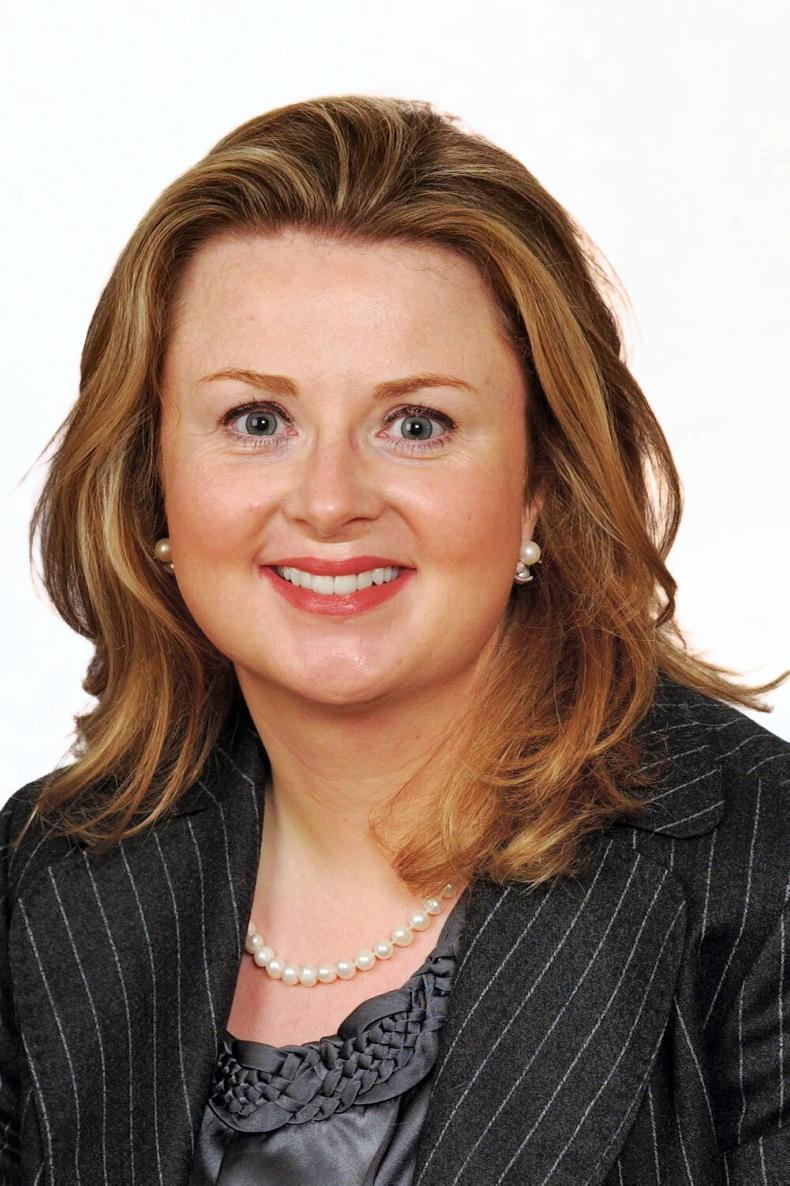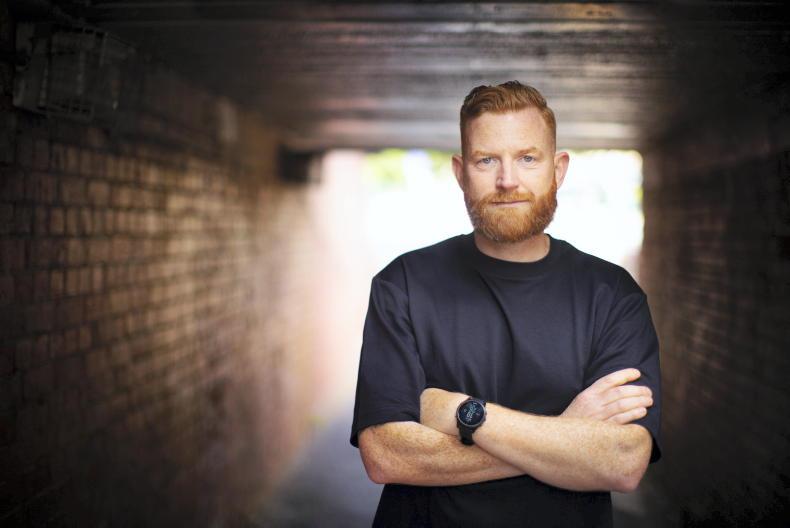Brendan Moynihan was visiting the bathroom up to six times a day and all he was passing was blood. Still, he was dismissed by his doctor and repeatedly told that he was “too young” for bowel cancer, a cancer which can affect any part of the colon or rectum. His doctor was wrong. Brendan was diagnosed with stage two bowel cancer at 38 years old, and more than two years on from his recovery, he is dedicated to raising awareness and funds to fight against this disease.
Talking to Irish Country Living over Zoom from his home in Sydney, Australia, he says it is a world away from his native homeland of Berrings, a rural townland near Ballincollig, Co Cork.
He describes growing up in rural Cork with fondness – “I played Gaelic football, I played hurling, I was really sporty all my life.” After moving to Dublin to study at DCU, he then worked with Kerry Group for many years before moving to Australia on a career break. “I haven’t moved back. I’m here now 14 years,” he says.
Brendan is talking to us during Bowel Cancer Awareness Month in Australia. Bowel cancer is Australia’s most deadly cancer for people aged 25-44 years old. It is also the second most common cause of cancer death in Ireland, with over 2,500 new cases of bowel cancer reported every year. There has been a rise in the diagnosis of younger people too.
Figures from the National Cancer Registry of Ireland, which examined more than 25 years of data, highlighted that the incidence rate had doubled (up to 2019).
Professor Ferga Gleeson, gastroenterologist at Blackrock Health Clinic, tells Irish Country Living that it is important for younger people to be aware of bowel cancer and its symptoms.

Professor Ferga Gleeson, gastroenterologist at Blackrock Health Clinic.
“There can be a tendency for some people to consider bowel cancer as a disease that only affects the older population, but we know that more and more young people are being diagnosed,” she says. “In many cases with younger patients, we are seeing people present with the more advanced forms of bowel cancer.”
This is the myth that Brendan is keen to dispel in his advocacy: “bowel cancer is not an old man’s disease,” he says fervently.
Struggle to get diagnosis
When Brendan was diagnosed with bowel cancer at the end of 2022, he was living in Melbourne and had been experiencing extreme tiredness for several months. This is one of the symptoms of bowel cancer that can go overlooked. “I’m a runner,” says Brendan. “I run five days a week and I got to a point in August 2022 when I couldn’t run 500 metres. I just had no energy and that’s what prompted my first visit.
“I visited my doctor over a six-month period and he dismissed me on five different occasions. He kept saying to me: ‘you’re too young’ for bowel cancer.

Brendan completed the Melbourne
Marathon in 2023 to raise funds for Bowel Cancer Australia.
“That’s a big thing that needs to change all around the world. It affects people of all ages and it affects both genders.”
Brendan went to a different doctor in December that year. “I got to a point where I was in so much agony, I wasn’t sleeping. I was unable to function at work.” It was Christmas week, and he remembers the visit clearly. “I knew by his body language and his tone as he listened to my story that I was in trouble.”
In January 2023, Brendan underwent right hemicolectomy surgery [surgery that removes the ascending colon and part of the transverse colon] and about half of his large colon was removed. “What I know today is very different to being diagnosed because when the news was broken to me, I wasn’t even aware of bowel cancer. It was not on my radar at all.”
It was difficult for Brendan being diagnosed with stage two bowel cancer with his family on the other side of the world but he says that the short time period between his diagnosis and operation made it easier.
“I had such a short window to get my life in order. I was diagnosed on Christmas Eve and my first surgery was 9 January. I didn’t have time to stress about it, whereas my recovery and especially my time off work was a lot more challenging.”
Although Brendan still goes for scans every six months, he considers himself “one of the lucky ones”.
Everything was covered by his private health insurer and the tumour had not metastasised to other parts of the body. “Luckily they managed to remove everything that needed to come out through surgery. Provided I could pass stool naturally myself within a period of time, I could go home.”
Fighting on
Since his operation, Brendan has been heavily engaged in raising awareness of bowel cancer. He delivers talks, contributes to podcasts and recently shared his story on national TV in Australia.
“I am an ambassador for Bowel Cancer Australia and our biggest initiative is called Never2Young. We go to Parliament every year to meet politicians and demand they do more.”

Brendan shared his experience of bowel cancer on The Morning Show in Australia in June.
Brendan also does his own fundraising for Bowel Cancer Australia through sponsored runs. “My goal is to raise $100,000/€55,000,” he says. Brendan works in brand management, and his employer, the Coca-Cola company, have donated $10,000/€5,500 to his fundraiser.
With a working background in whiskey, Brendan also organised a big whiskey auction last year and raised $17,000/€9,000. “It’s kind of leaning into my network to spread the word and then leverage connections to get the money for bowel cancer,” he says.
Brendan’s big message is to go for regular checks with your GP. “I think rural people have a tendency to say: oh, it will be grand.
“If there’s something wrong health wise, go and speak to your doctor. Equally, if you’re not happy with what they tell you, get a second opinion because you know your body. It costs you nothing and you have everything to live for.
“I love that more and more people are talking about this. I think rural people are less likely to openly talk about things like poo, as an example, but the more we’re aware and talking about it, the greater chance of catching this early.”
Professor Gleeson also stresses that the earlier bowel cancer is detected, the better the outcomes. She highlights the importance of the national screening programme [people aged between 59 and 70 in Ireland are eligible for free bowel screening every two years] and a colonoscopy. “Bowel cancer oftens begins as a growth called a polyp, located inside the colon or rectum.
Finding and removing polyps can prevent bowel cancer,” says Professor Gleeson. “A colonoscopy after an abnormal unexplained stool test is associated with a 50% reduction in the risk of cancer death.
“If you are experiencing any unusual symptoms relating to your bowel that persist for a long period of time, you should visit your GP,” says Professor Gleeson. “If you are experiencing any of the symptoms listed, it does not automatically mean that you have bowel cancer, but you should check with a medical professional who can discuss next steps with you.”
Bowel cancer: know the symptoms
In Ireland, the national BowelScreen programme also offers free bowel screening to people aged 59 to 70 every two years.
Screening helps to detect bowel cancer at an early stage. People who wish to take part in the screening programme are sent a screening test kit in the post.
The Irish Cancer Society have warned that bowel cancer screening uptake is going backwards and nationwide awareness needs to be increased.
According to HSE data, only 2 in 5 people who were eligible to participate in BowelScreen actually took part. Ireland’s target uptake is just 45%, which is nowhere near the EU recommended bowel cancer screening target uptake of 65%.
What are the symptoms of bowel cancer to look out for?
B is blood in your stool.
O is obvious changes to your bowel habit e.g. diarrhoea or constipation.
W is unexplained weight loss.
E is extreme tiredness.
L is lumps in your stomach or your abdomen.
If you are displaying one or more of these persistently, see your doctor.
Scan the QR code for Brendans Go Fund Me page for Bowel Cancer Australia.

For more information, see bowelcancer.ie; and cancer.ie/bowel.
Brendan Moynihan was visiting the bathroom up to six times a day and all he was passing was blood. Still, he was dismissed by his doctor and repeatedly told that he was “too young” for bowel cancer, a cancer which can affect any part of the colon or rectum. His doctor was wrong. Brendan was diagnosed with stage two bowel cancer at 38 years old, and more than two years on from his recovery, he is dedicated to raising awareness and funds to fight against this disease.
Talking to Irish Country Living over Zoom from his home in Sydney, Australia, he says it is a world away from his native homeland of Berrings, a rural townland near Ballincollig, Co Cork.
He describes growing up in rural Cork with fondness – “I played Gaelic football, I played hurling, I was really sporty all my life.” After moving to Dublin to study at DCU, he then worked with Kerry Group for many years before moving to Australia on a career break. “I haven’t moved back. I’m here now 14 years,” he says.
Brendan is talking to us during Bowel Cancer Awareness Month in Australia. Bowel cancer is Australia’s most deadly cancer for people aged 25-44 years old. It is also the second most common cause of cancer death in Ireland, with over 2,500 new cases of bowel cancer reported every year. There has been a rise in the diagnosis of younger people too.
Figures from the National Cancer Registry of Ireland, which examined more than 25 years of data, highlighted that the incidence rate had doubled (up to 2019).
Professor Ferga Gleeson, gastroenterologist at Blackrock Health Clinic, tells Irish Country Living that it is important for younger people to be aware of bowel cancer and its symptoms.

Professor Ferga Gleeson, gastroenterologist at Blackrock Health Clinic.
“There can be a tendency for some people to consider bowel cancer as a disease that only affects the older population, but we know that more and more young people are being diagnosed,” she says. “In many cases with younger patients, we are seeing people present with the more advanced forms of bowel cancer.”
This is the myth that Brendan is keen to dispel in his advocacy: “bowel cancer is not an old man’s disease,” he says fervently.
Struggle to get diagnosis
When Brendan was diagnosed with bowel cancer at the end of 2022, he was living in Melbourne and had been experiencing extreme tiredness for several months. This is one of the symptoms of bowel cancer that can go overlooked. “I’m a runner,” says Brendan. “I run five days a week and I got to a point in August 2022 when I couldn’t run 500 metres. I just had no energy and that’s what prompted my first visit.
“I visited my doctor over a six-month period and he dismissed me on five different occasions. He kept saying to me: ‘you’re too young’ for bowel cancer.

Brendan completed the Melbourne
Marathon in 2023 to raise funds for Bowel Cancer Australia.
“That’s a big thing that needs to change all around the world. It affects people of all ages and it affects both genders.”
Brendan went to a different doctor in December that year. “I got to a point where I was in so much agony, I wasn’t sleeping. I was unable to function at work.” It was Christmas week, and he remembers the visit clearly. “I knew by his body language and his tone as he listened to my story that I was in trouble.”
In January 2023, Brendan underwent right hemicolectomy surgery [surgery that removes the ascending colon and part of the transverse colon] and about half of his large colon was removed. “What I know today is very different to being diagnosed because when the news was broken to me, I wasn’t even aware of bowel cancer. It was not on my radar at all.”
It was difficult for Brendan being diagnosed with stage two bowel cancer with his family on the other side of the world but he says that the short time period between his diagnosis and operation made it easier.
“I had such a short window to get my life in order. I was diagnosed on Christmas Eve and my first surgery was 9 January. I didn’t have time to stress about it, whereas my recovery and especially my time off work was a lot more challenging.”
Although Brendan still goes for scans every six months, he considers himself “one of the lucky ones”.
Everything was covered by his private health insurer and the tumour had not metastasised to other parts of the body. “Luckily they managed to remove everything that needed to come out through surgery. Provided I could pass stool naturally myself within a period of time, I could go home.”
Fighting on
Since his operation, Brendan has been heavily engaged in raising awareness of bowel cancer. He delivers talks, contributes to podcasts and recently shared his story on national TV in Australia.
“I am an ambassador for Bowel Cancer Australia and our biggest initiative is called Never2Young. We go to Parliament every year to meet politicians and demand they do more.”

Brendan shared his experience of bowel cancer on The Morning Show in Australia in June.
Brendan also does his own fundraising for Bowel Cancer Australia through sponsored runs. “My goal is to raise $100,000/€55,000,” he says. Brendan works in brand management, and his employer, the Coca-Cola company, have donated $10,000/€5,500 to his fundraiser.
With a working background in whiskey, Brendan also organised a big whiskey auction last year and raised $17,000/€9,000. “It’s kind of leaning into my network to spread the word and then leverage connections to get the money for bowel cancer,” he says.
Brendan’s big message is to go for regular checks with your GP. “I think rural people have a tendency to say: oh, it will be grand.
“If there’s something wrong health wise, go and speak to your doctor. Equally, if you’re not happy with what they tell you, get a second opinion because you know your body. It costs you nothing and you have everything to live for.
“I love that more and more people are talking about this. I think rural people are less likely to openly talk about things like poo, as an example, but the more we’re aware and talking about it, the greater chance of catching this early.”
Professor Gleeson also stresses that the earlier bowel cancer is detected, the better the outcomes. She highlights the importance of the national screening programme [people aged between 59 and 70 in Ireland are eligible for free bowel screening every two years] and a colonoscopy. “Bowel cancer oftens begins as a growth called a polyp, located inside the colon or rectum.
Finding and removing polyps can prevent bowel cancer,” says Professor Gleeson. “A colonoscopy after an abnormal unexplained stool test is associated with a 50% reduction in the risk of cancer death.
“If you are experiencing any unusual symptoms relating to your bowel that persist for a long period of time, you should visit your GP,” says Professor Gleeson. “If you are experiencing any of the symptoms listed, it does not automatically mean that you have bowel cancer, but you should check with a medical professional who can discuss next steps with you.”
Bowel cancer: know the symptoms
In Ireland, the national BowelScreen programme also offers free bowel screening to people aged 59 to 70 every two years.
Screening helps to detect bowel cancer at an early stage. People who wish to take part in the screening programme are sent a screening test kit in the post.
The Irish Cancer Society have warned that bowel cancer screening uptake is going backwards and nationwide awareness needs to be increased.
According to HSE data, only 2 in 5 people who were eligible to participate in BowelScreen actually took part. Ireland’s target uptake is just 45%, which is nowhere near the EU recommended bowel cancer screening target uptake of 65%.
What are the symptoms of bowel cancer to look out for?
B is blood in your stool.
O is obvious changes to your bowel habit e.g. diarrhoea or constipation.
W is unexplained weight loss.
E is extreme tiredness.
L is lumps in your stomach or your abdomen.
If you are displaying one or more of these persistently, see your doctor.
Scan the QR code for Brendans Go Fund Me page for Bowel Cancer Australia.

For more information, see bowelcancer.ie; and cancer.ie/bowel.










 This is a subscriber-only article
This is a subscriber-only article










SHARING OPTIONS: